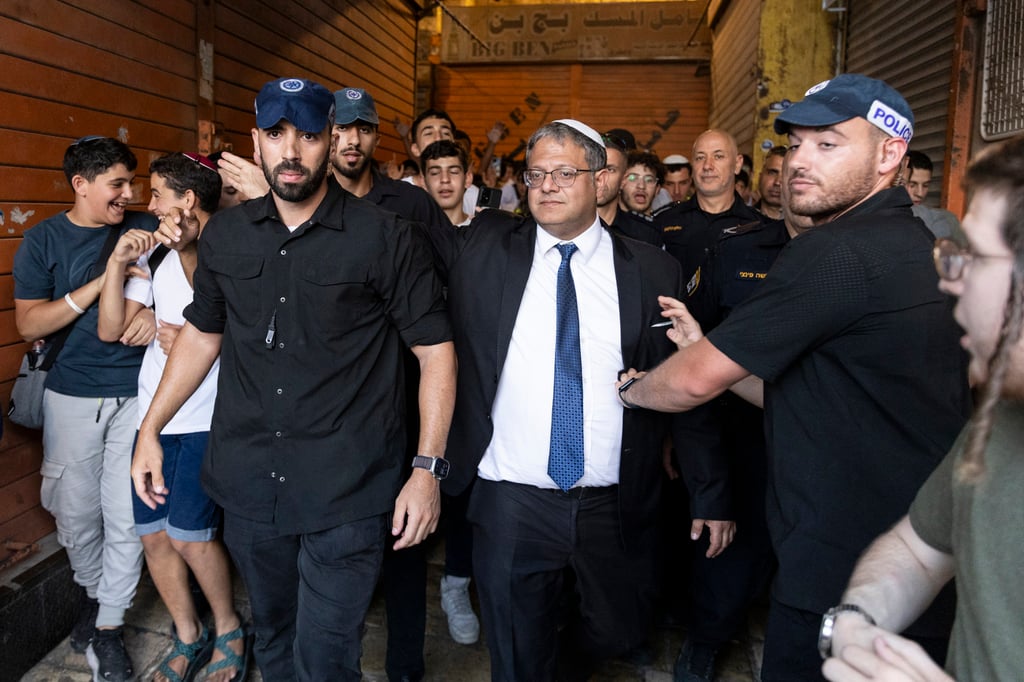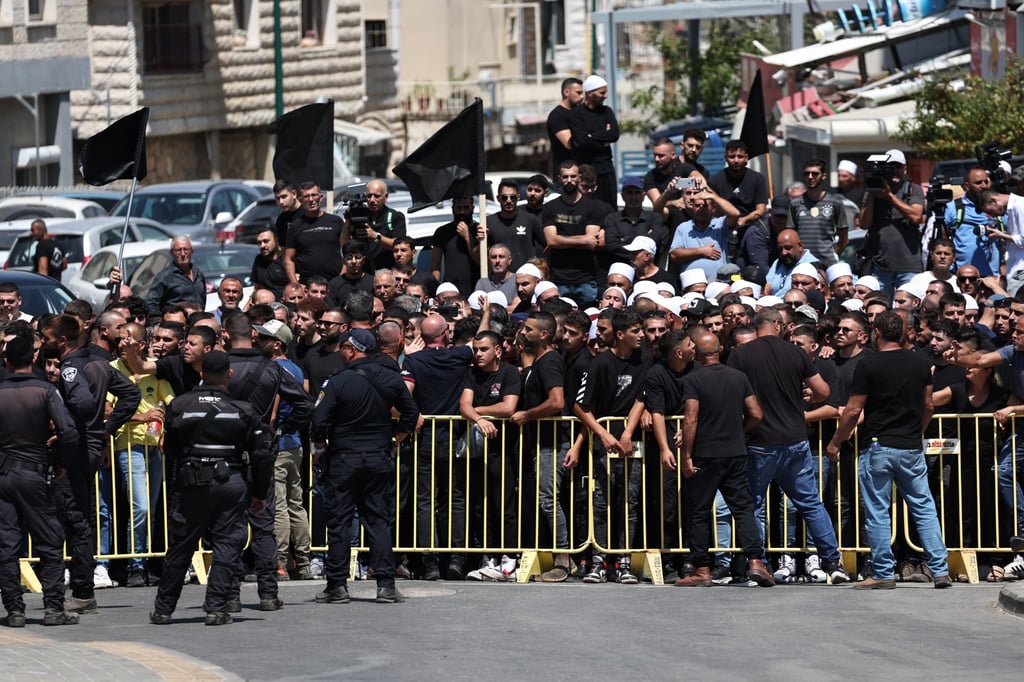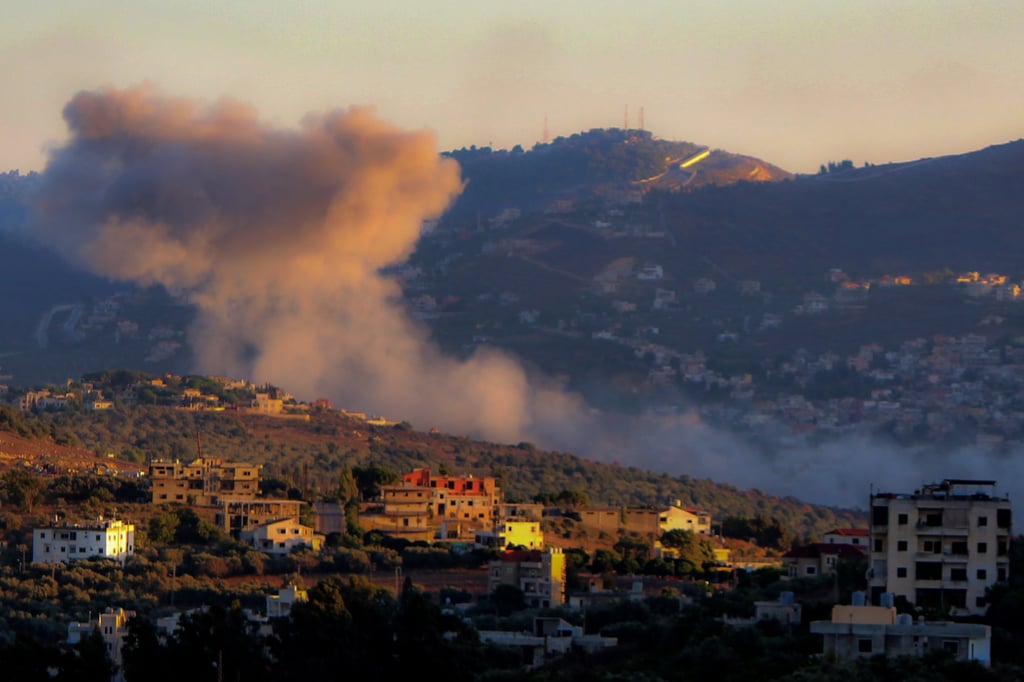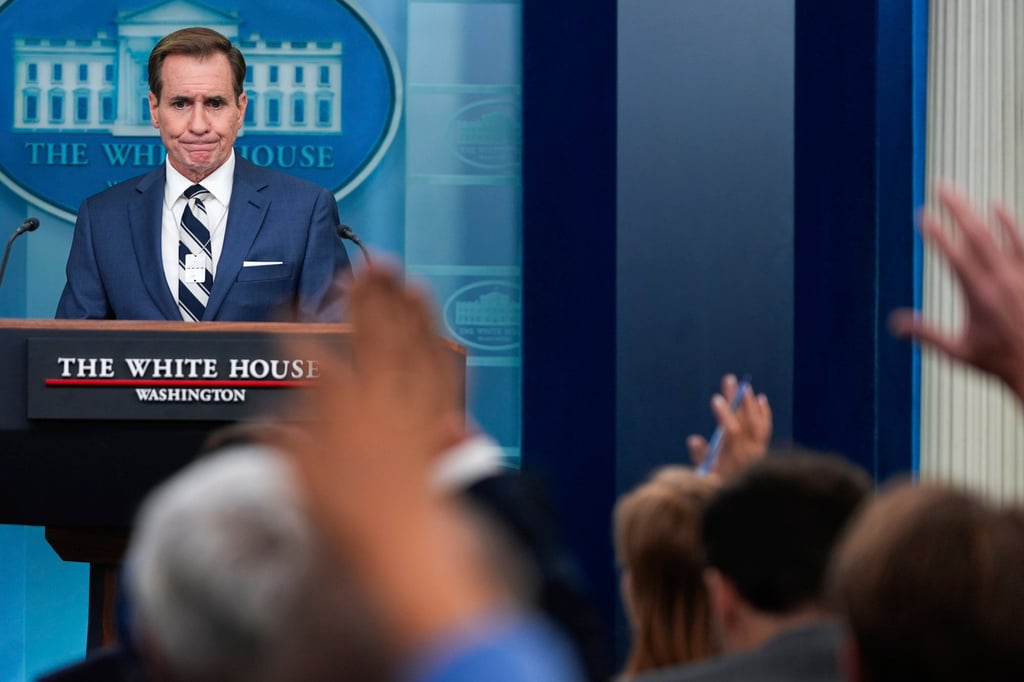Far-right protesters storm Israeli bases over soldiers’ arrests
Sde Teiman, where Palestinians captured during the almost 10-month military campaign in Gaza are also held, has been the subject of Supreme Court challenges by human-rights watchdogs alleging intolerable conditions. Those claims have failed to attract much sympathy in Israel, where outrage over the October 7 atrocities by Hamas, designated a terrorist group by the US, remain high.
Local media reported that several army reservists deployed as wardens at Sde Teiman were arrested. Television reports showed what appeared to be military policemen, some wearing masks to conceal their faces, leading away a soldier.
The Israel Defence Forces said Israeli civilians tried to break into Sde Teiman in an apparent protest against the arrests. Their actions are “extremely serious and against the law”, chief of staff Herzi Halevi said in a statement.

The military did not immediately confirm any arrests, saying only that its judge advocate-general had ordered an investigation into the suspected abuse of a detainee.
Yuli Edelstein, a member of Netanyahu’s Likud party and head of parliament’s Foreign Affairs and Defence Committee, said he would summon the judge advocate-general and military police chief for a hearing before the forum.
“Our soldiers are not criminals,” Edelstein said in a statement.

Washington is racing to avert a full-blown war between Israel and the Iranian-backed Lebanese movement Hezbollah after the attack on the Israeli-occupied Golan Heights killed 12 youths at the weekend, according to the five people who include Lebanese and Iranian officials plus Middle Eastern and European diplomats.
Israel and the US have blamed Hezbollah for the rocket strike, though the group has denied responsibility.
The focus of the high-speed diplomacy has been to constrain Israel’s response by urging it against targeting densely populated Beirut, the southern suburbs of the city that form Hezbollah’s heartland, or key infrastructure like airports and bridges, said the sources who requested anonymity to discuss confidential details that haven’t been previously reported.
“If they avoid civilians and they avoid Beirut and its suburbs, then their attack could be well calculated,” he said.

Israeli officials have said that their country wants to hurt Hezbollah but not drag the region into all-out war. The two Middle Eastern and European diplomats said Israel had not made any commitment to avoiding strikes on Beirut, its suburbs or civil infrastructure.
The US State Department said it would not comment on the specifics of diplomatic conversations. “Our support for Israel’s security is ironclad and unwavering against all Iran-backed threats, including Hezbollah,” a spokesperson told Reuters.
White House spokesman John Kirby told reporters that Israel had every right to respond to the Golan Heights strike. “But nobody wants a broader war,” he added. “As for conversations over the weekend, you bet we’ve had them and we had them at multiple levels. But I’m not going to detail the guts of those conversations.”
The Israeli Prime Minister’s office did not respond to a request for comment, while Hezbollah declined to comment.

An Iranian official said the United States had also conveyed messages to Tehran at least three times since Saturday’s attack on the Golan Heights, “warning that escalating the situation would be detrimental to all parties”.
Hezbollah is the most powerful of Iran’s “Axis of Resistance” network of regional proxy groups and allied with Palestinian group Hamas. It has been trading fire with the Israeli military across Lebanon’s southern border since the Gaza war erupted.
During a 2006 war, the last time Israel and Hezbollah fought a major conflict, Israeli forces bombed Beirut’s southern suburbs, known as the Dahiya, hitting Hezbollah-affiliated buildings as well as residential towers. Beirut airport was bombed and put out of action, and across Lebanon bridges, roads, petrol stations and other infrastructure were destroyed.
Additional reporting by Reuters